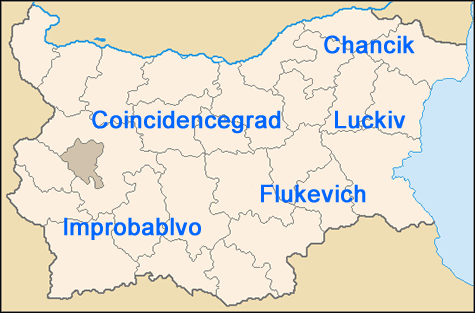Adverse Childhood Experiences
Can You Spot a Coincidence?
How well do you spot coincidences?
Posted October 26, 2009

What is the probability of dealing five cards and getting:
- The ace of hearts
- The king of hearts
- The queen of hearts
- The jack of hearts and
- The 10 of hearts?
Is it higher or lower than the probability of getting:
- The 6 of clubs
- The 2 of diamonds
- The 4 of hearts
- The 7 of spades
- The 9 of spades?
Well, which is it, higher or lower?
Many are surprised to learn that both hands have the exact same probability of being dealt. All sets of 5 cards are equally probable, it's just that the eye picks up the first set as an amazing coincidence (coinciding with the set of great poker hands) and the the second looks like nothing at all (unless its digits make up your ZIP code). So there are coincidences everywhere, it's just that some stand out more to our eyes.
At the same time, "coincidental" things happening can indicate that something is amiss. If your neighbor keeps winning the lottery and happens to have a brother who works for the lottery, we might suspect that he is not winning multiple times due to chance alone. Scientists think the same way. They'll do an experiment, let's say to test a cold remedy, and they'll get data from the control group (who unknowingly took a placebo) and the experimental group (who took the real thing). When the randomly-assigned experimental group has colds that last fewer days on average, scientists will calculate the probability that the data could have come out that way even if the experimental group's pill was a placebo too. When the probability is small (a common standard is less than 5% or 1%) that of the one group would have shorter-lasting colds by chance alone, the scientist thinks: "well, one of two things must be happening: Either the experimental drug has some effect, or we have here is a coincidence."
This brings us to the topic du jour. On September 6th, the winning Bulgarian lottery numbers were:
4, 15, 23, 24, 35 and 42.
Amazing? Hardly. But on the very next play of the lottery the winning numbers were:
4, 15, 23, 24, 35 and 42.
Amazing? Yes. Coincidence? Maybe. Shenanigans? Maybe. A record setting eighteen people bet on the winning numbers the second time around. In a small country like Bulgaria, is that a coincidence? According to the BBC an investigation is underway. David Smith has done his own analysis of the problem and figures that, given conservative assumptions, there's just over a 1% chance of a back-to-back drawings somewhere in the world over a 50-year period.
David concludes the Bulgarian lottery result "is not so quite so surprising after all".
According to Smith, the probability of the data given the hypothesis of randomness is 1%. And what do most scientists do when the probability of the data given the null is less than 5%?


